Lumen Learning
Lumen: Boundless Communications: Understanding Language
This lesson focuses on understanding the language, both verbal and non-verbal, of your speech. It discusses the importance of language, word choice, purpose and audience, ways of thinking about language, venue and occasion, and delivery.
Lumen Learning
Lumen: Writing Skills: Tone, Language, and Appeal
This lesson plan focuses on using tone, language, and appeal to recognize and evaluate rhetorical approaches to building common ground. RI.9-10.4 word meanings/impact of choice
Lumen Learning
Lumen: Writing Process: Proofreading
This lesson focuses on proofreading and editing including style, word choice, grammar, typos, tips for proofreading, proofreading strategies, and editing for language and sentence construction. It offers two videos: "5 Worst Typos of...
Get It Write
Get It Write: Anymore and Everyday
Knowing the difference between the use of words adverbially and adjectivally is essentia, especially when using "anymore" and "any more" and "everyday" and "every day." A very good explanation of the usage is given along with many...
Get It Write
Get It Write: Using the Verb "Include" to Preface a List
Use this tutorial to learn when to use "include" and when to use a form of the verb "to be" when writing a list. A brief quiz checks your understanding.
Writing Fix
Writing Fix: Little Toy Friend Poems
In this lesson students will create a poem from the viewpoint of a lost toy.
Robin L. Simmons
Grammar Bytes: Word Choice: Exercise 1: Their, There, and They're
Complete these 20 sentences by choosing the correct form of their, there, and they're.
Robin L. Simmons
Grammar Bytes: Word Choice: Exercise 2: Their, There, and They're
Complete these 20 sentences by typing the correct form of their, there, and they're.
Robin L. Simmons
Grammar Bytes: Word Choice: Exercise 9: Whose and Who's
Test your understanding of the words "whose and "who's" by choosing the word that best completes each of the twenty sentences. Immediate feedback on answers is provided and a percentage score is tallied throughout the quiz.
Robin L. Simmons
Grammar Bytes: Word Choice: Exercise 10: Whose and Who's
Test your understanding of the words "whose and "who's" by typing the word that best completes each of the twenty sentences. Immediate feedback on answers is provided and a percentage score is tallied throughout the quiz.
Robin L. Simmons
Grammar Bytes: Word Choice: Exercise 13: Its and It's
Test your understanding of the words "its" and "it's" by choosing the word that best completes each of the twenty sentences. Immediate feedback on answers is provided and a percentage score is tallied throughout the quiz.
Robin L. Simmons
Grammar Bytes: Word Choice: Exercise 14: Its and It's
Test your understanding of the words "its" and "it's" by typing the word that best completes each of the twenty sentences. Immediate feedback on answers is provided and a percentage score is tallied throughout the quiz.
Online Writing Lab at Purdue University
Purdue University Owl: Using Appropriate Language
Knowing the right language for your particular audience is a necessary skill for all writers. No one wants to offend their audience or appear as though they don't know their content. Learn these rules of thumb to become more familiar...
Education.com
Education.com: L.3.3.a Worksheets: Choose Words and Phrases for Effect
[Free Registration/Login Required] A site with links to 21 worksheets that can be downloaded and printed for student use while building skills with standard L.3.3.A: Choose words and phrases for effect.
Better Lesson
Better Lesson: W.4.2d: Use Precise Language and Vocabulary
Links to 27 lessons and activities that build student skills in standard W.4.2d: Use precise language and domain specific vocabulary to inform about or explain the topic.
Education.com
Education.com: L.4.3.a Worksheets: Choose Words and Phrases to Convey Ideas
[Free Registration/Login Required] A site with links to 16 worksheets that can be downloaded and printed for student use while building skills with standard L.4.3.A: Choose Words and Phrases to Convey Ideas.
Texas Education Agency
Texas Gateway: Syntax (English I Reading)
This lesson focuses on syntax; All writers and speakers choose their words and the way they arrange them to make their work more powerful. You will see this in a segment of President Kennedy's speech and then in poetry; poets in...
CommonLit
Common Lit: Units: 11th Grade: Thematic Unit: Values and Beliefs
Complete teaching unit for 11th Grade Thematic Unit: "Values and Beliefs." Students will read 8 short stories that examine how values and beliefs are shaped. They will analyze these stories, and the short story form, while considering...
CommonLit
Common Lit: Units: 9th Grade Thematic Unit: Love
Complete teaching unit for 9th Grade Thematic Unit: "Love." In this unit, 9th graders will read six texts that speak to the theme of love. They will revisit the essential question "What is love, and how does it change us?" throughout the...
Florida Center for Reading Research
Florida Center for Reading Research: Word Analysis: Word Wake Up
A lesson plan in which young scholars match a strong word choice with its overused counterpart. Materials are included.
Florida Center for Reading Research
Florida Center for Reading Research: Words in Context: Pun Fun [Pdf]
A lesson plan in which students choose three selections of interesting word play in a text and then work with a partner to discuss their choices. Materials are included.
TED Talks
Ted: Ted Ed: The Case Against "Good" and "Bad"
Don't take the easy route! Instead, use this little trick to improve your writing -- let go of the words "good" and "bad," and push yourself to illustrate, elucidate, and illuminate your world with language. Free registration is required...
PBS
Pbs Learning Media: Literary Elements and Techniques: Tone and Mood
Explore the difference between tone and mood in this animated video [2:28] from WNET through definitions and examples from poetry and prose. Discussion questions below help students to further apply their understanding before analyzing a...
Louisiana Department of Education
Louisiana Doe: Louisiana Believes: Social Studies: Grade 3: A Log's Life
Third graders learn about the interdependence of animals and trees in nature and the cycles of growth and decay. Students also learn about the importance of preserving balance in nature and what happens when we upset that balance. While...




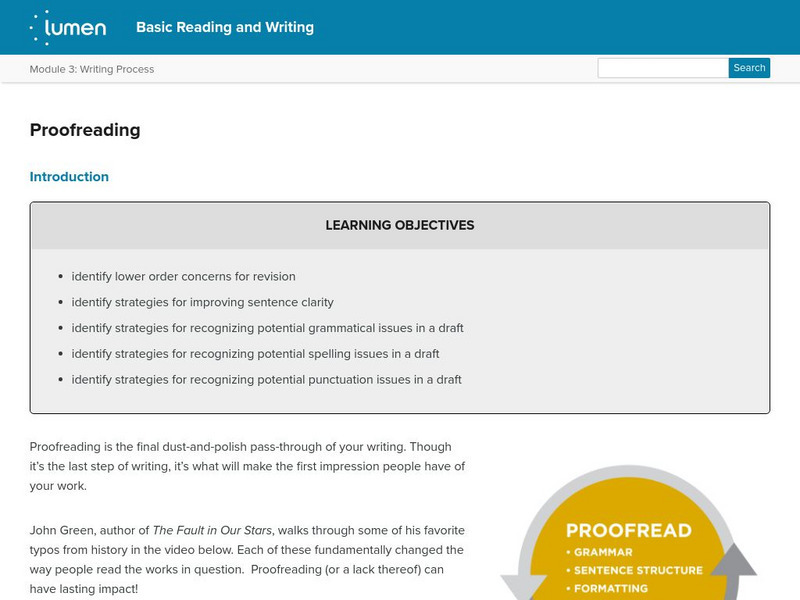
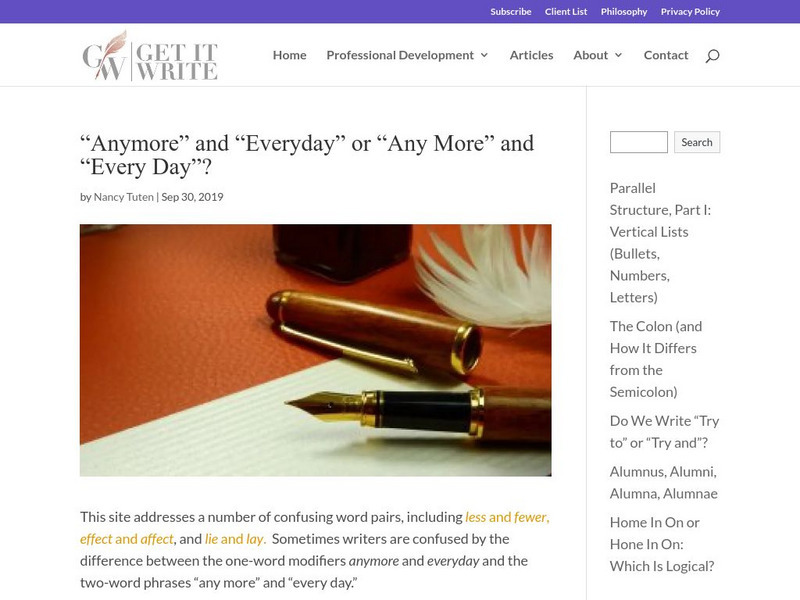
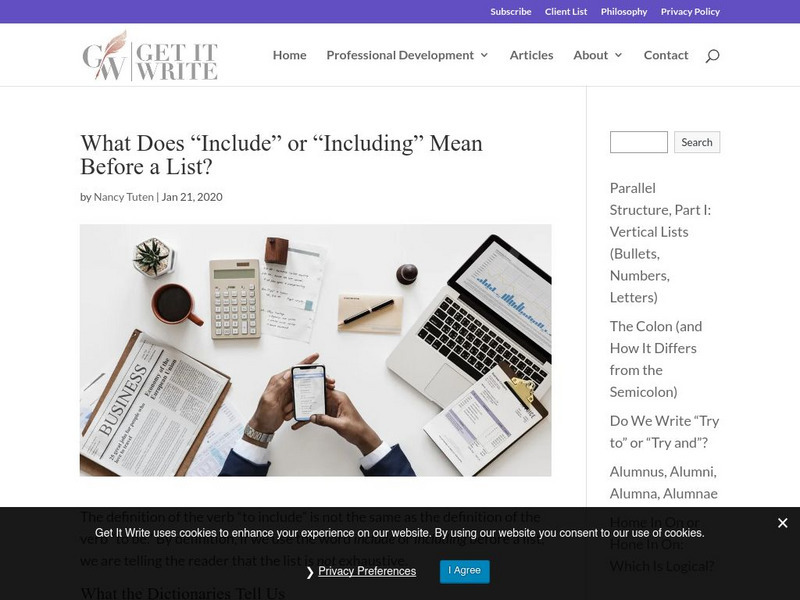


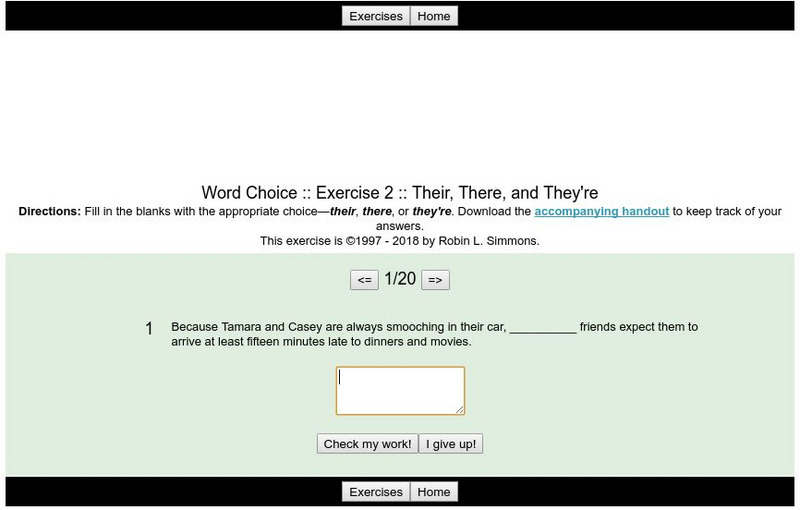
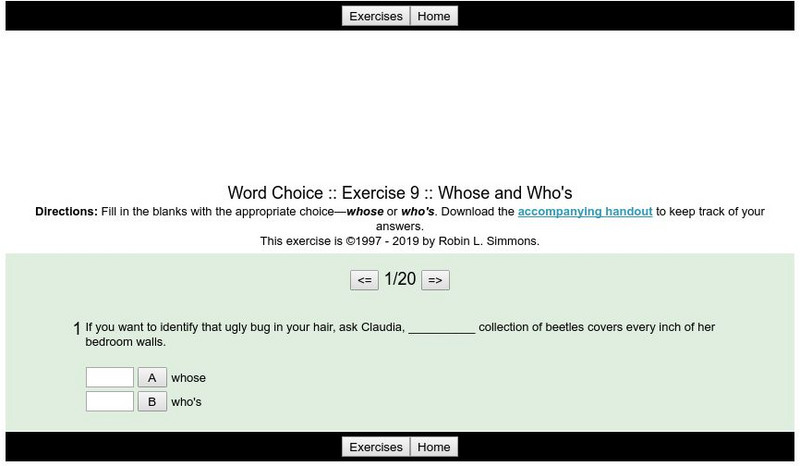
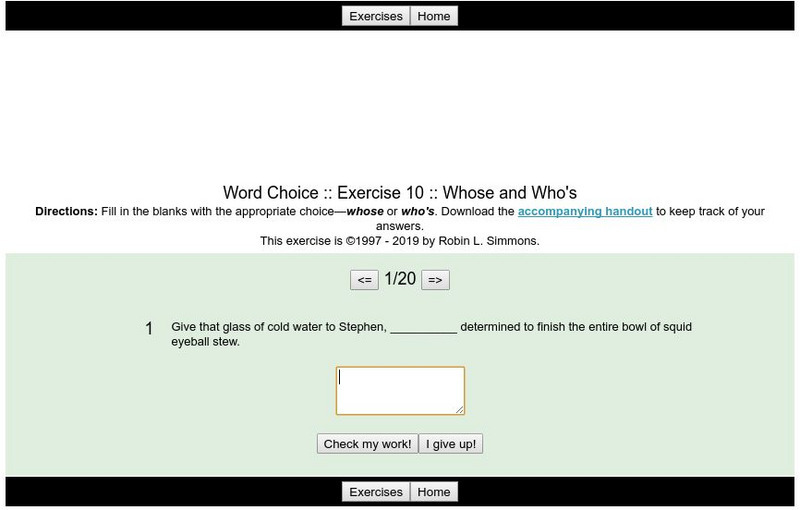




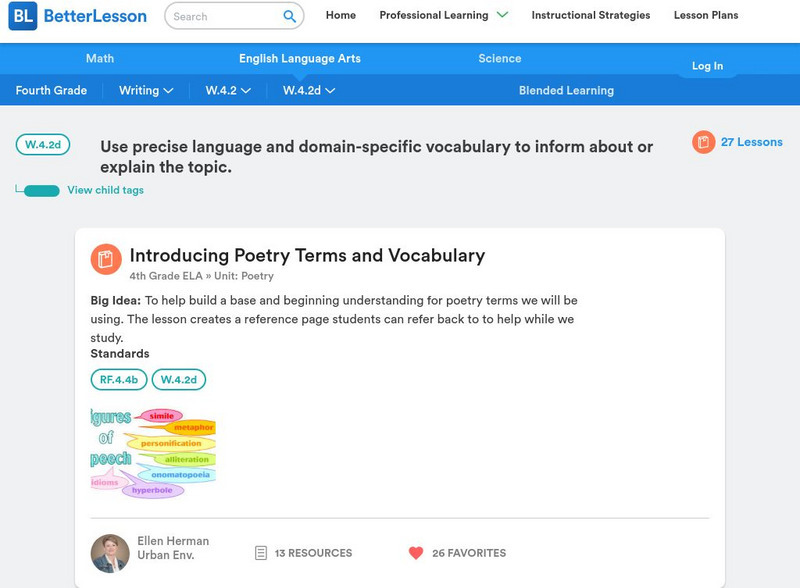

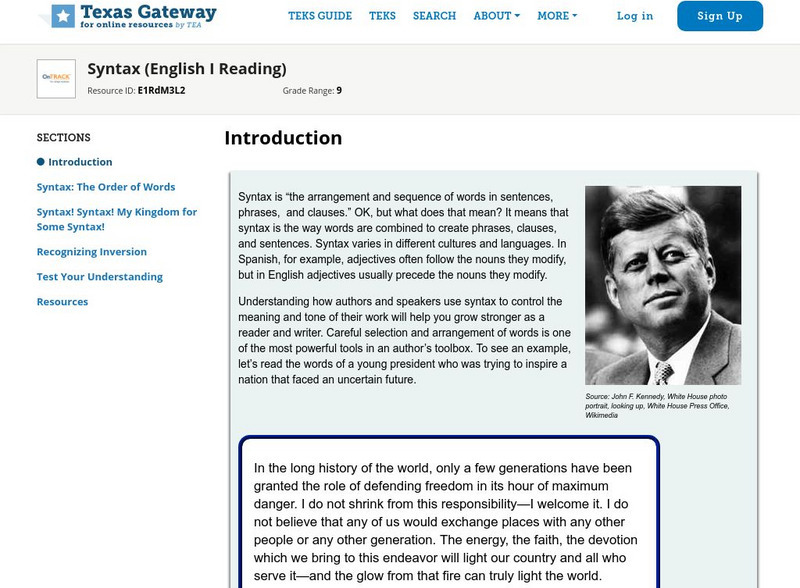


![Florida Center for Reading Research: Words in Context: Pun Fun [Pdf] Lesson Plan Florida Center for Reading Research: Words in Context: Pun Fun [Pdf] Lesson Plan](https://content.lessonplanet.com/knovation/original/509077-a0f76bc4bfcc5e9291543bc9aed6f6e9.jpg?1661787007)
